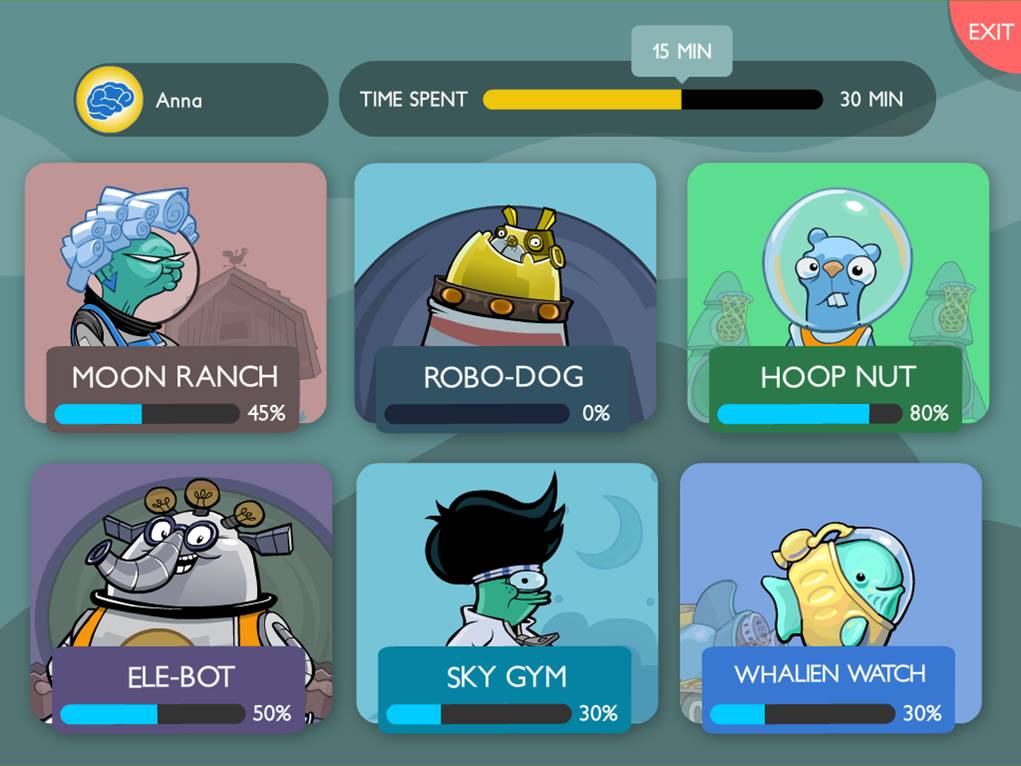 For everyone at Scientific Learning, developing the New Fast ForWord has been an opportunity to step back and reflect on what we are doing well and where we can improve. Every day we see Fast ForWord users making dramatic gains in language, reading, and learning skills. However, we also see students who struggle with a particular exercise or skill. To better understand where improvements were needed, we spoke with many educators about their implementation struggles, strategies, and successes. What came out of these conversations is an intervention program that is better, faster, and smarter!
For everyone at Scientific Learning, developing the New Fast ForWord has been an opportunity to step back and reflect on what we are doing well and where we can improve. Every day we see Fast ForWord users making dramatic gains in language, reading, and learning skills. However, we also see students who struggle with a particular exercise or skill. To better understand where improvements were needed, we spoke with many educators about their implementation struggles, strategies, and successes. What came out of these conversations is an intervention program that is better, faster, and smarter!
Better Learning Impact
To provide an even better learning impact, we looked at each exercise individually, taking a deep dive into data from hundreds of thousands of exercise sessions. Our analyses revealed who gets stuck, where the sticking points are, and what design factors are helping or hindering student progress. Specific design changes were based on these findings. For example, we learned that many students got stuck at the very beginning of Sky Gym. To address that, the entire introduction was revamped with new instructions, different stimuli and progression rules, and automated interventions for those students who continue to struggle.
Faster Student Progression & Improved Student Motivators
We looked across all exercises, evaluating the exercise mechanics and user interface. We identified a number of new features and improvements that will help students progress more quickly, while making their progress more visible and rewarding. The Autoplay feature allows students to take trials more quickly, by serving a series of trials after one click of the Go button. If a student gets all trials in an Autoplay series correct, the next series will be one longer. The Current Streak and Highest Streak signs, in conjunction with Autoplay, provide game-like rewards for getting consecutive correct trials, reinforcing the behavior that is most closely tied to making rapid progress. In addition, there is now a greater focus on showing students their progress in terms of percent complete. At every 1% complete, the Feeder Meter and Completion Status Sign increment; at every 10% complete the Progress Meter increments and the Completion Celebration Sign appears with fanfare.
In many exercises, we saw that the progression rules could be made more efficient. Some exercises, like Sky Gym and Moon Ranch, required too many tiny steps before a student could work their way up to material at the right level of challenge. For these exercises, we designed more adaptive progression rules that will help students rapidly get “in the zone.” Other exercises, like Ele-bot and Space Commander required passing large blocks of diverse content, which meant that students had to repeatedly cycle through material they had already mastered. For these exercises, we broke up the blocks into smaller units of related content, designed more adaptive progression rules, and developed automated interventions that target specific issues. For example, in Space Commander, a student who is struggling with “before touching the red square, touch the blue circle,” will get interventions that focus on the language of temporal sequences, whereas a student who is struggling with commands like “touch the small green square and the large green circle” will get interventions that focus on memory strategies.
Smarter Intervention
Finally, we considered how we could better utilize our data, going forward, to benefit the students and educators we serve. For this, an entirely new software platform was developed. We call it “SmartLearning Technology,” and this platform is our new secret sauce. SmartLearning Technology supports ongoing scientific experimentation and product improvement.
The New Fast ForWord exercises are more adaptive and more supportive. They help students work independently, make rapid progress, and see their own progress. Because students work more independently and stay motivated, the new Fast ForWord exercises are also easier to implement. SmartLearning Technology will allow Scientific Learning to continue to make this kind of data-driven improvement, in future iterations. All of this makes the new Fast ForWord better, faster, and smarter!


Comments
Is there a release date for
Hi Kathleen - For Foundations